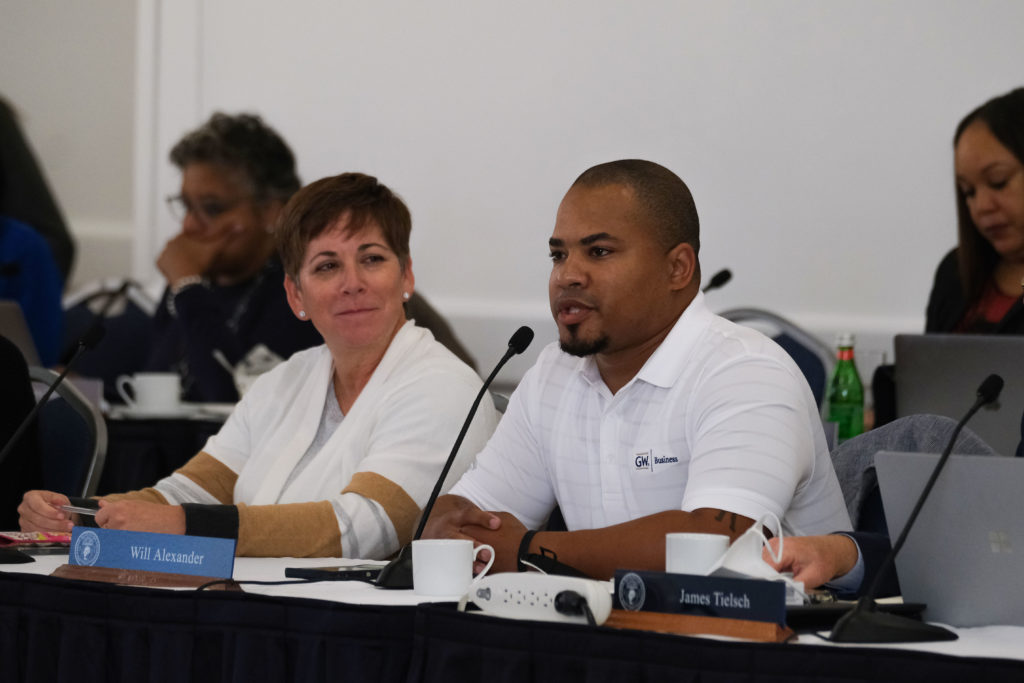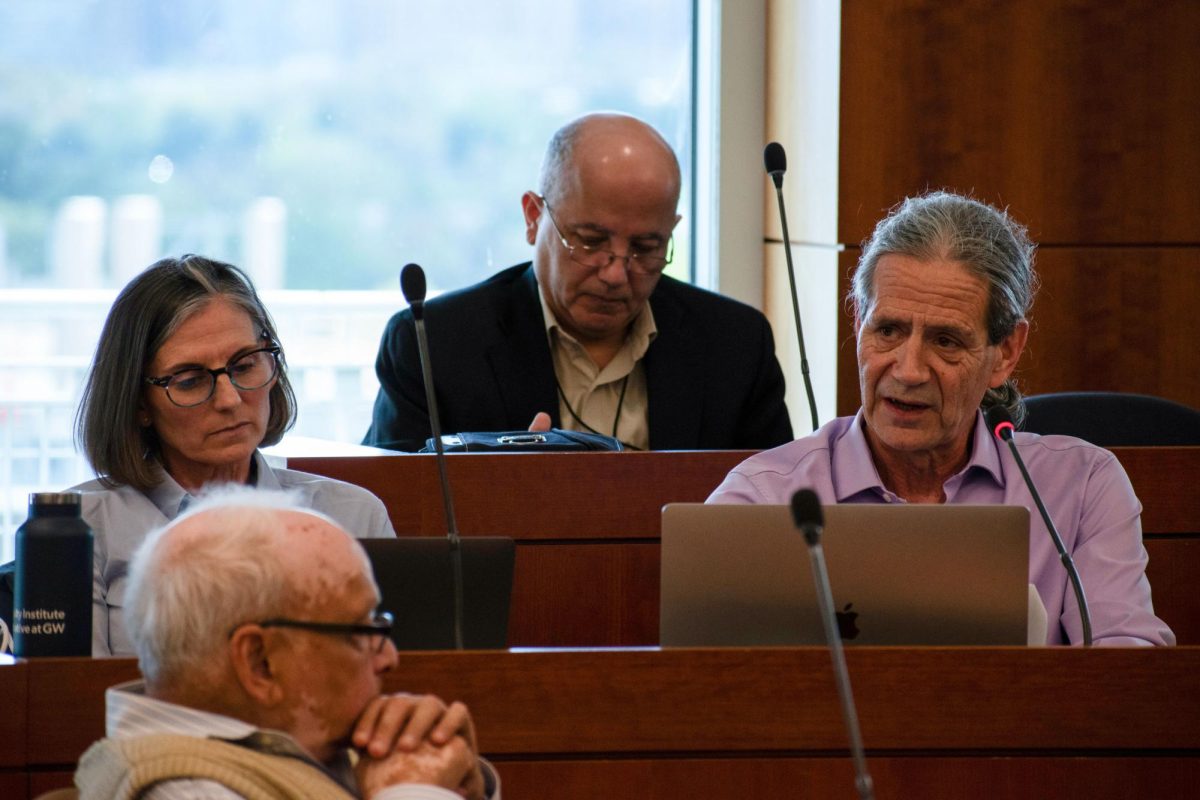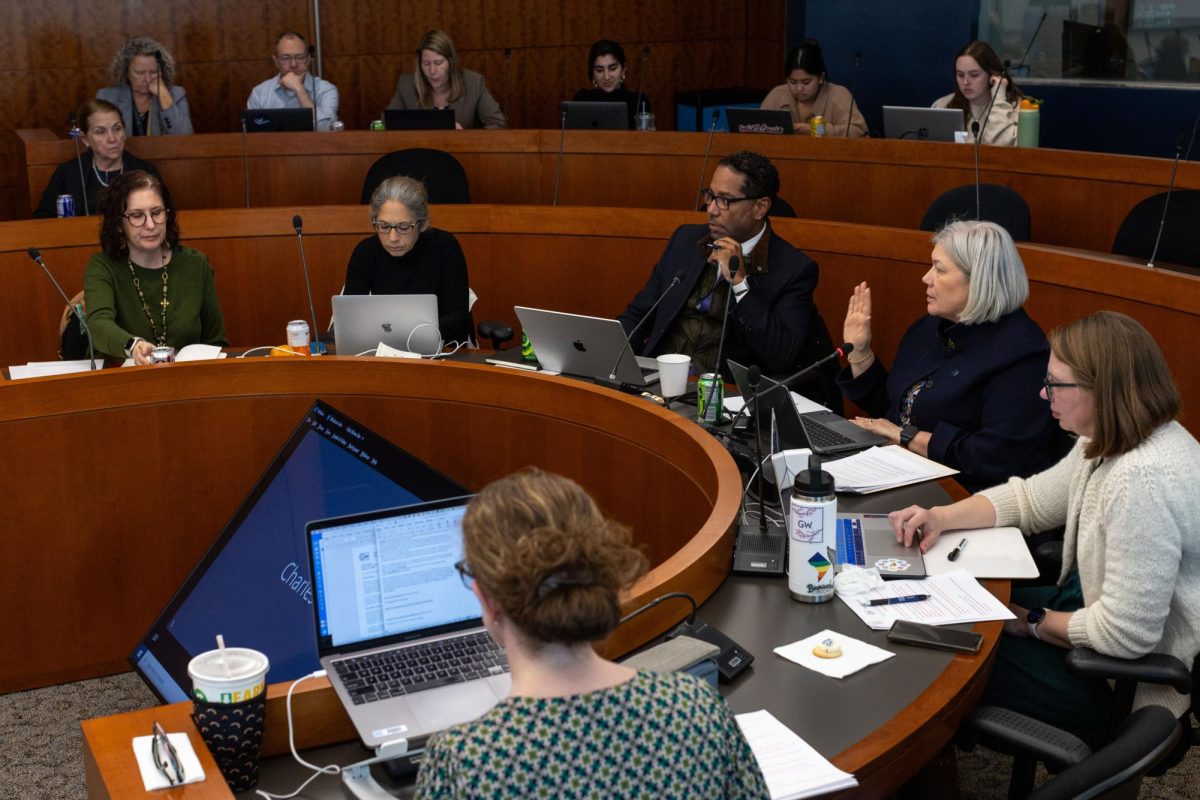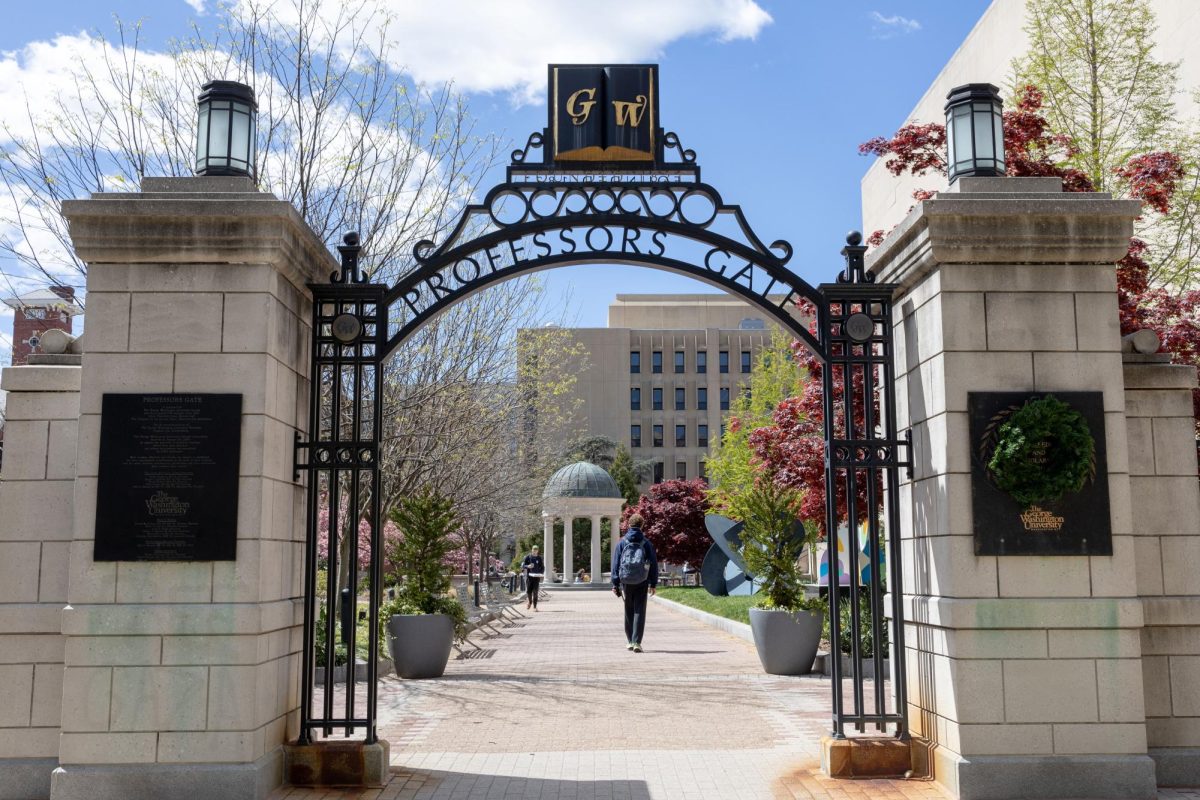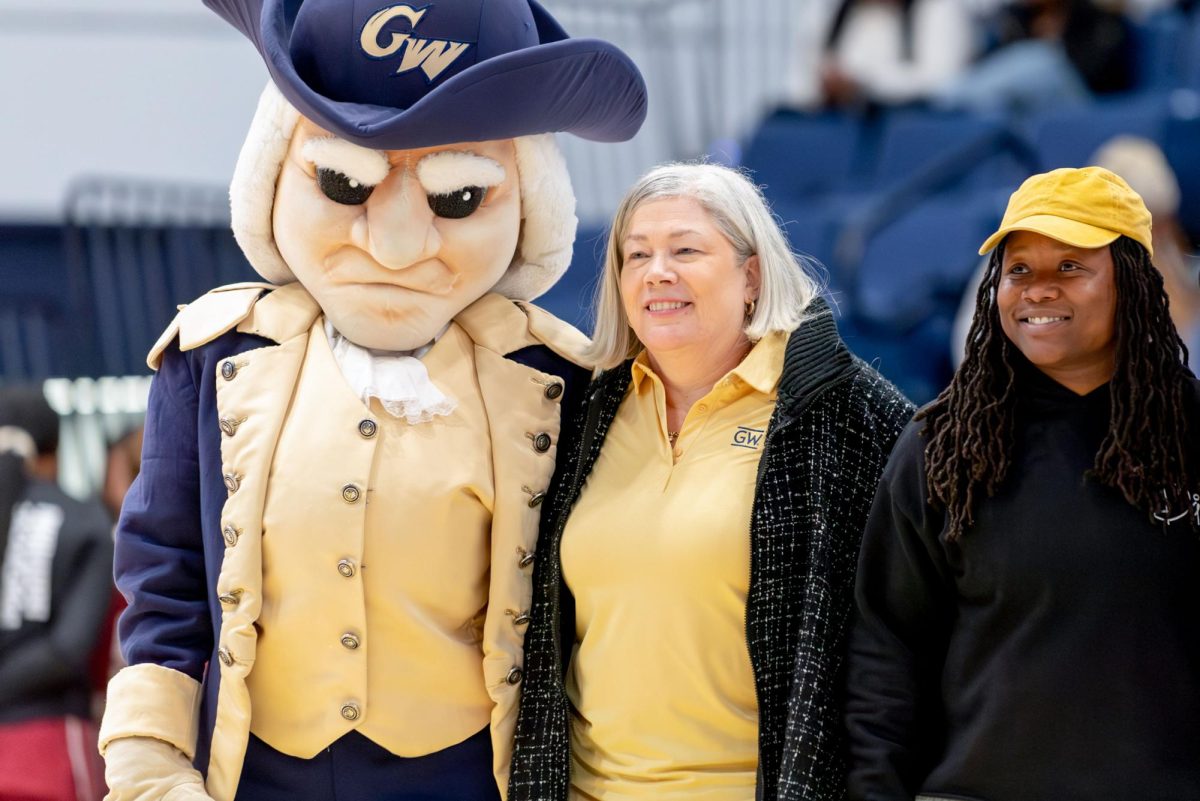GW’s donations have increased by more than $1 million during 2022, but the numbers of donors has shrunk, Alumni Association President Will Alexander III announced at the Board of Trustees meeting Friday.
Alexander III said GW has started to rely on a smaller group of high-yield donors who have helped maintain fundraising levels to meet the University’s financial goals during the past three to five years. He attributed the loss of some of those donors to personal disagreements with University issues, like aversion to the removal of the Colonials moniker in favor of a University rebrand.
He said officials hope to address concerns from disgruntled donors about administrative decisions through community events to revive GW’s donor base.
“One of the things that has been kind of a concerning trend, even as we’ve come out of the pandemic, is some of the overall value of what’s been donated has either kept steady or had a slight bump,” he said at the Board meeting. “We’re getting more from the people who are donating – but there has been over the past maybe three to five years, a noticeable contraction in the number of donors.”
“Is there perhaps a more constructive outlet for you to be able to voice your dissent?” he said of community members who have stopped donating because of University issues. “You’re not necessarily hurting the administrator or the part of the University that maybe did a thing that you didn’t agree with, you’re hurting the students and the vision of what we’re trying to accomplish here.”
Speights declined to sit down with The Hatchet after the meeting, marking a year since she has agreed to answer questions about the state of the University – breaking from a yearslong precedent for chairs of the Board.
Trustee Roslyn Brock, the chair of the Presidential Search Committee, said the committee will be ready to release its presidential profile – which describes the qualifications and attributes officials are looking for in potential candidates – in the next week.
In GW’s last presidential search, which ended in 2017, officials released their presidential profile about five months into the search process and less than three months before they announced former University President Thomas LeBlanc would enter office. It has been six months since officials announced the formation of the presidential search committee in late April and kicked off the search for a new University president in earnest.
The committee hosted a series of community forums about the search last month with students, staff, faculty and alumni who called for an increased commitment to diversity and sustainability and wider community involvement in major decisions from GW’s next president.
“I want members of the community to know that the committee heard you – we listened and we have executed,” Brock said. “Following the forums, the committee held a successful, two-day retreat to digest the feedback provided in the forums and further consider and refine the types of candidates they hope to meet. We are thrilled and encouraged by the process and the progress we have made on developing a presidential profile.”
Trustee Charles Bendit, who chairs the Board’s Audit and Compliance Committee, said officials should try to raise the number of faculty and staff who complete GW’s Title IX training plan. He said the Board has asked officials to incentivize more employees to complete the training courses, but they have not been able to do so.
The University’s requirements for faculty and staff Title IX training is not listed on its Title IX education and training webpage.
At the Board’s May meeting, Bendit said the number of employees who had completed the training was “unacceptable,” with a 20 percent faculty completion rate of the courses. Officials said they would “enhance” the University’s Title IX training program last December, following allegations that the office had mishandled sexual assault cases.
“The quarterly enterprise risk management report included the report on the Title IX training plan, which remains a great concern for the committee,” he said Friday. “The provost and chief administrative officer were charged with providing the committee a status of completion rates for both faculty and staff in November.”
Bendit, who also is the vice chair for the Board’s Finance and Investments Committee and delivered the committee’s report, said GW’s endowment has reached about $2.3 billion, a nearly $100 million decline from where it stood in April.
He also said officials are on track to meet GW’s goal of divesting its endowment from companies that focus on fossil fuel extraction by 2025.
“Despite the recent downturn in the market, GW’s pooled endowment – which is separate from its real estate holdings – has outperformed the benchmarks,” he said.
Trustee Christine Barth, who chairs the Board’s Strategic Planning and Enrollment Committee, said this year’s freshman class contains the highest number of first-generation and low-income college students in GW’s history. She said increasing the economic and academic diversity of incoming students will “align” with GW’s strategic planning in the years to come.
“The committee was pleased to learn that the academic profile of the residential undergraduate student body achieved record institutional highs,” she said.
Barth said the University’s overall enrollment is on track to meet officials’ goal of 25,000 students registered for classes in the fall. She also said the number of online and international students has increased as GW emerges from the COVID-19 pandemic.
Officials doubled down on their international student recruitment efforts last fall as COVID-related foreign travel restrictions started to lift after enrollment levels dipped earlier during the pandemic.
“The committee really spent the majority of its time having a robust discussion of the University’s future enrollment strategy,” she said. “We discussed the national impact of national demographic changes and the evolution of educational delivery and their associated assumptions.”
Board Chair Grace Speights said members of the Board’s executive committee met with members of the Faculty Senate’s executive committee before the public meeting as part of the University’s new principles around shared governance, which call for more cooperation between trustees, administrators and faculty.
Jim Tielsch, the chair of the Faculty Senate’s executive committee, said the senate will focus on the financial state of the Medical Faculty Associates and implementing the University’s new shared governance principles in the near future.
“Certainly, the MFA-School of Medicine and Health Sciences financial situation and future plans are near the top of our list,” he said at the meeting. “That was a central point of discussion at yesterday’s joint meeting and then the second one would be operationalizing shared governance. That’s going to be a process just like the principles effort was a process, and I suggest that some senate committees could offer some concrete suggestions for how we actually operationalize this.”
Caitlin Kitson and Nick Pasion contributed to reporting


